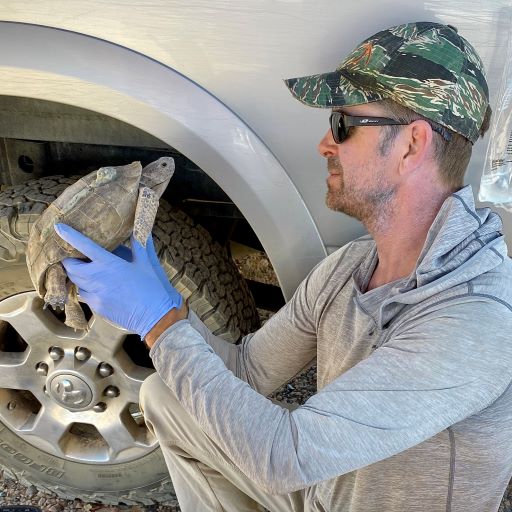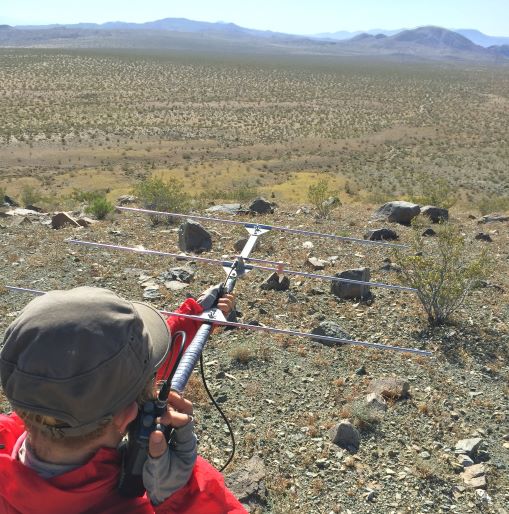Wilder staff and associates are experienced field biologists currently working in the arenas of desert tortoise translocation and USFWS health assessment techniques. The skills and experience we offer can address the need for the safe handling and movement of desert tortoises when such activities are indicated by agency guidance documents.

Our personnel have participated in several large scale tortoise translocation projects in the last 15 years, often filling lead roles.
Wilder personnel have often filled key leadership positions on these complex projects, most notably on the Marine Corps Air Ground Combat Center (MCAGCC) base expansion, which has been the largest translocation to date. During the 2 years of surveys and preparatory work for this MCAGCC translocation, Nate Jones and Liana Harp managed teams of 5-15 biologists engaged in clearance surveys, USFWS protocol health assessments and blood sampling of desert tortoises, and the weekly telemetry tracking of over 1,200 tagged, wild tortoises.
Principal Biologist Nate Jones facilitated the successful translocation effort through the development of a GIS structure that informed workflow and on-site data processing for mapping and tracking animal movements and status. Now, after seven years (2015-2022) of work, Nate Jones and Liana Harp are still currently involved in the monitoring studies following this large translocation, and have performed USFWS protocol health assessments on hundreds of tortoises.

Translocation Plan Interpretation and Implementation:
- USFWS Health Assessment (including sampling oral and blood)
- Safe handling and transport
- Telemetry tracking, transmitter placement and removal
- Geospatial data management, analyses, and interpretation
Our staff and associates have skills and knowledge honed through years of specialized work to safely, efficiently, and effectively carry out the movement of tortoises, when called for by agency guidance documents. Through this involvement, our personnel have developed a thorough understanding of the complexities inherent in this sensitive work.
See More Services
